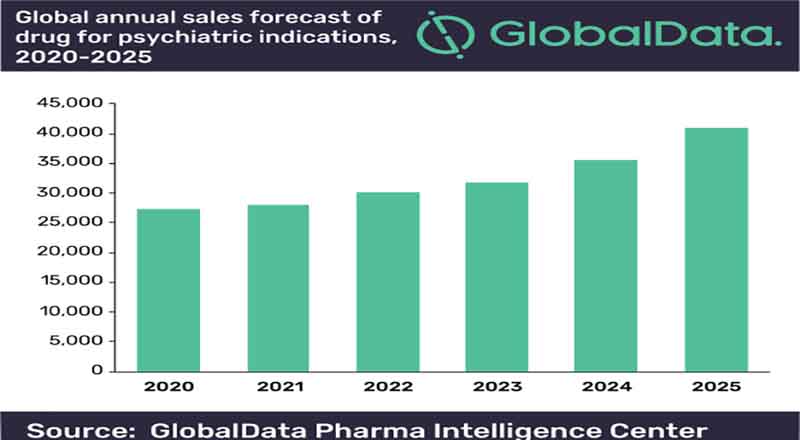An estimated 1.5 billion people around the world have been asked to practice social distancing amid the outbreak of coronavirus (COVID-19) that has caused the deaths of more than 69,000 people. The rapid spread of the disease, escalation of pulmonary symptoms, financial disruption, travel restrictions and social isolation have been cited as a catalyst for increased prevalence of mental disorders such as depression across a variety of age groups, says GlobalData, a leading data and analytics company.
Magdalene Crabbe, Pharma Analyst at GlobalData, comments: “Sales of drugs for psychiatric disorders such as depression, anxiety and obsessive compulsive disorder are expected to reach $27.4bn in 2020 – an increase of $717m from the previous year. Sales are then expected to increase from $27.4bn in 2020 to $40.9bn in 2025, growing at a compound annual growth rate (CAGR) of 8.4%.
“Personalized treatment strategies are important for treating psychiatric disorders, which may be exacerbated by the COVID-19 crisis. Responses to therapy are highly diverse, and drugs that work for some people may not be effective for others.
“It is important that people realise that depending on pharmaceutical drugs is not necessarily the solution to the negative impact that COVID-19 will have on people’s mental health. Recovering from the worst pandemic this century has experienced so far will be achieved through a combination of approaches, including psychotherapy, physiotherapy and financial assistance.”





